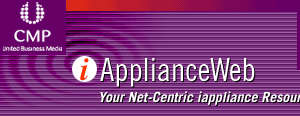



 |
 |
|
|
 |

|
||
|
|
|
|
|||

|
Netcentric View: The Future of the PC Future In A Connected World
By Bernard Cole
|
|||||||||||
 |
Of course, there were trucks and tractors and alternatives to the Ford vehicles. But a successful form factor had been found and every one was sticking pretty closely to it, coming up with variations on that theme. Then as new competitors, new technology, and new engineering talent came into the industry, the standard one-size-fits-all auto gave way to a variety of increasingly specialized vehicles.
Tractors, trucks and other specialty utility vehicles took on forms and functions more specific to particular market segments, especially as the demand increased. In the mainstream of average driving, the vehicles evolved to fit the new roads and freeways and expressways. But over time the shift was away from function and into form, and from efficiency to more horsepower.
The late '50s and '60s were the decades of styling and power, where marketers looked for ways to get us to buy cars every year or at least as soon as the style or the engine increased in power. With the oil crisis in the '70s, the dynamics of the market changed, and consumers wanted efficiency and low cost.
The cost of gas is still a factor. Though customers are still looking for low cost and fuel economy, they're willing to give up some of the extras, such as more horsepower and extra size, for more specific functionality. For example, they're looking for utility combined with styling: pickup trucks with air conditioning and all the accoutrements of a luxury auto; minivans and their successor, the suburban utility vehicle; small cars for city driving; larger cars for traveling. The fast cars, the pretty cars and the fancy cars are all still there, as are the appeals to other things besides utility and cost.
The proliferation of Internet access and broadband connectivity has had the same impact on the personal computer market as the oil and gas crisis had on the automobile. Now, in addition to the familiar PC brands and types, there are a range of new net-centric computing vehicles that have evolved to help us travel the information superhighway: Web-enabled set-top boxes, digital televisions, smart embedded Internet devices, information appliances, information-centric embedded devices, Internet appliances, Internet devices, Internet-centric embedded devices, Internet-enabled embedded devices, mobile Internet devices, and pervasive computers.
Paralleling the history of the auto, the traditional PC will morph into a number of different types and personas in this market, not necessarily aimed at the mass consumer but at the more specialized requirements of those of us who want the equivalent of utility vehicles or luxury cars.
This evolution is particularly evident in the corporate environment, where the Java-enabled successors to dumb terminals -- network computers -- will coexist with slimmed-down, easier to use and maintain personal computers as well as more powerful information vehicles that will allow those who need extra compute power to do their job better.
What will this more powerful utility vehicle look like, internally and externally? I hope there's a shift away from the Windows-based graphical user interface to one more appropriate to the way we now use the PC -- as a vehicle to surf Web sites, download Web pages, read and search Usenet interest groups, and monitor and track Web sites for activities of personal and professional interest.
For example, the current browser methodologies and the new ones proposed by Microsoft and Sun do little or nothing about the problem that power users of the Web will face. They'll be metaphorically driving around a megalopolis that is continuing to grow in size and complexity in a vehicle with navigation aids more appropriate to a small town that hasn't changed in ten years.
What I have done is what power users of automobiles did when they couldn't get what they needed: I have taken a standard vehicle and rebuilt it to my needs. I have an e-mail program that lets me receive emails through several personas; an adjunct to my browser that allows me to display graphically in tree form all of the Web sites and pages I visit; another program to allow me to map a company's Web site graphically in detail; and agent programs to sit out there on the Web autonomously and monitor user groups, on-line discussion groups, and particular Web sites for mention of particular topics.
Whether such capabilities move into the mainstream depends on how critical the need will be among information workers to avoid getting lost in hyperspace.
In the home environment, how will the PC evolve? One possibility is that the PC may morph into a "personal server" that automatically performs many of the functions I outlined above, but that also will be the site of not just a personal Web page but a personal Web site.
In the workplace the personal server will no doubt look something like it does now. But in the home I don't think it is likely that this new personal server will sit on a desktop someplace. It will probably be embedded someplace, next to the house power switches, for example, with a variety of devices and their GUIs providing the user interface.
Two things make this seem to be a likely possibility. One is the emergence of IPV6, with its 128-bit-wide protocol making available as many unique Web addresses as there are stars in the Milky Way Galaxy. The other is the emergence of the "home network," in which the dozens of processors and controllers embedded in the everyday things we use are linked to a local network which is in turn linked to a "home gateway" that acts as an intermediary to the outside Web.
One thing is certain. The PC is not dead and will not likely pass away for a long time to come. But what it will look like and how we will use it? And where in the house will it live?
What are your views about the direction the desktop computer will go in this new connected computing environment? I would like to hear from you.
Reader Feedback
Agreed, the PC is evolving into several sub-species. This move has been going on for years, it is nothing new.
The PC is seen as a general purpose box - but look around any IT center, the truth is that although the basics are the same PCs already ARE different.
Just look at the servers in the machine room. The file servers look radicly different from the web servers, Our web servers sit in 1U racks, have a couple of IDE drives 256MB Ram, a single processor and thats about it. The file servers are huge boxes, lots of RAM and large SCSI disk packs. compare that to a general purpose PC on your desk. in the office there is little point in keeping up with the latest in power computing, I can run all of my "Office" apps quite happily on a P2 base PC lets face it wordprocessor software had all the features needed and wanted years ago - new features just add bloat. I only need faster machines (IO throughput more than raw horsepower) for compiling code or routing a PCB - and I am one of the companies "power users".
Now move into the home. I have several PCs (ok so I am not typical) I have a games machine, lots of CPU horsepower, Silly graphics card the works - why? because todays games are the only things that stretch the performance on a PC. I have the personal comms server that you talked about, a P90 box, running lights out (no screen or keyboard) sat in the cupboard under the stairs! it runs my mail server, firewall, web server, and provides services (DHCP, SNTP, Proxey, Directory etc) for the home LAN. I run a PC as part of my home entertainment system in place of a video recorder (a bit like a TVO unit), in my case it also deals with audio (in place of the CD player and RADIO) it contains a couple of T V tuner cards to allow simultainous viewing and recording (oh did I mention I don't have a TV, just a video projector?)
Why do this?
Because I can see the flexibility this offers me. I can listen to the radio or a recording served from my entertainment system whilst I work in my study while my wife listens to different music in the living room.
I am not sure that I need an internet enabled fridge, but having a LAN at home and several PCs dedicated to different tasks dotted about the house makes sense to me.
Andy Simpkins
Director
Mindsail Ltd.
Bernard Cole is site leader and editor of iApplianceweb and an independent high technology editorial services consultant. He welcomes your feedback. Call him at or send an email to .
For more information about topics, issues and technologies mentioned in this story go to the flashing icon in the upper left corner on this page or go to the iAppliance Web Views page and call up the associatively-linked Java/XML-based Web map of the iApplianceWeb site.
Enter the appropriate key word, product or company name to list instantly every news and product story, product review and product database entry relating to the topic since the beginning of the 2002.
![]()

